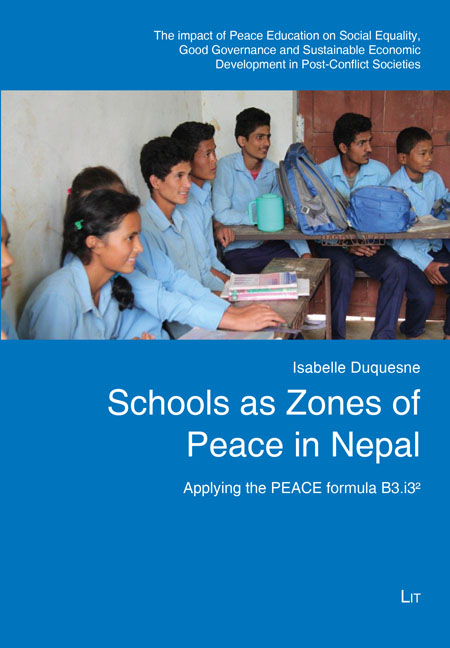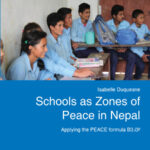Beschreibung
The four-year long action research in far-eastern Nepal blends peace education, social studies and local (ethnic) politics within national, post-conflict and state-building efforts. The outcomes of these studies and programs suggest a recipe for peaceability that could be included in the countrys educational curricula. A formula PACE B3.i3² synthesizes how educationalists may transform teaching into laboratories to develop the future peace-makers of their nation.
Isabelle Duquesne is affiliated with the International Peace Research Association Foundation (IPRA), and the UNESCO Chair for Peace Studies, Univeristy of Innsbruck (Austria).
<!– Covertext
The four-year long action research in far-eastern
Nepal blends peace education, social studies and local
(ethnic) politics within national, post-conflict and
state-building efforts. The outcomes of these intermittent
yet intensive interactions, surveys, case studies and
innovative programs suggest a recipe for peaceability that
could be included in the countrys educational curricula. A
formula PACE B3.i3² synthesizes
how educationalists may transform topical teaching and
classroom management into pedagogical laboratories to
develop the future peace-makers of their nation. Beyond the
case of Nepal, the research method and its results may be
transferred to any country, on the basis of local, cultural
adaptability.
i>Isabelle Duquesne is affiliated with the
International Peace Research Association Foundation (IPRA),
and the UNESCO Chair for Peace Studies, Univeristy of
Innsbruck (Austria), and regularly works for global
organizations such as the OECD and various UN agencies.
–>


